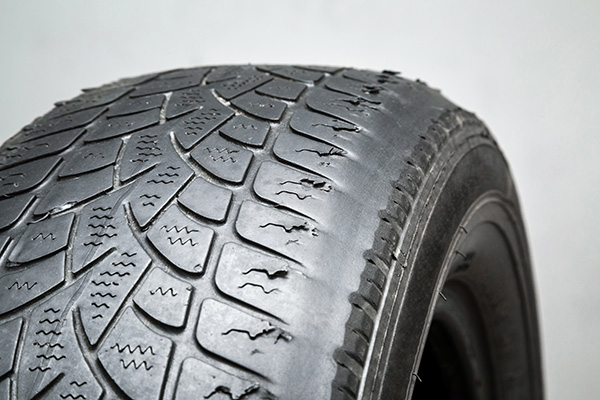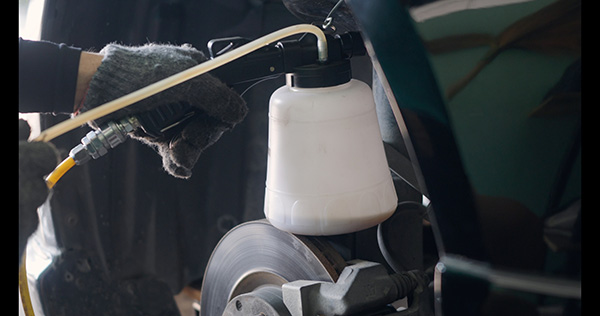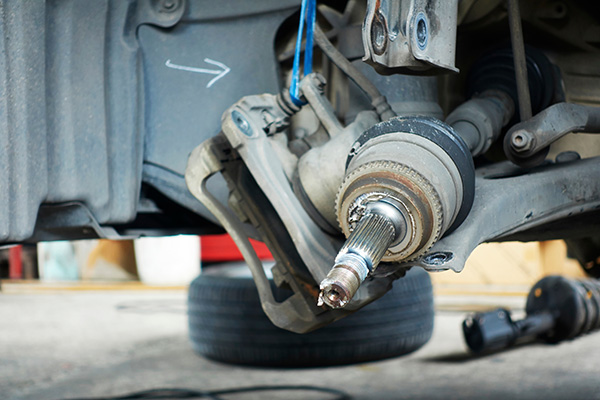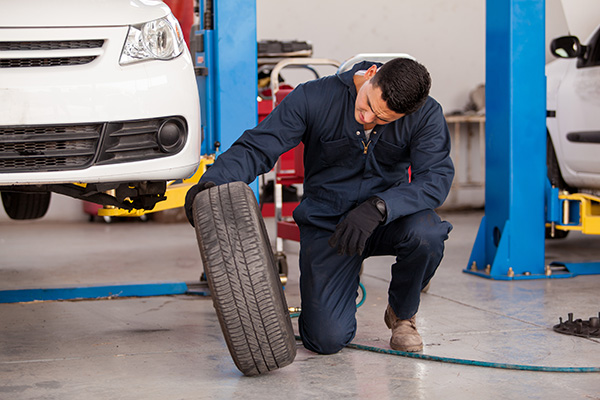Posted on 1/30/2026

Tires usually do not wear out from a single dramatic moment. It’s more like a bunch of small habits stacking up over time until the tread is gone sooner than expected. The frustrating part is that you can be doing most things right and still lose a lot of miles from a set of tires because of a few routines you barely think about. If you’re trying to stretch the tread life without babying your car, start by tightening up the habits below. They’re common, they’re fixable, and we see them over and over. Why Tires Wear Out Faster Than You Expect Tread wear is basically friction plus heat plus pressure, repeated thousands of times. Anything that increases drag, scrubs the tread sideways, or overloads one part of the tire will shorten its life. Alignment and suspension conditions play a role too, but your driving and maintenance habits can either protect the tires or speed up wear even when the car is mechanically sound. One thing we’ve noti ... read more
Posted on 12/19/2025

Brake fluid sits out of sight, so it is easy to forget about it. As long as the pedal feels firm and the car stops, most drivers assume everything is fine. The reality is that brake fluid slowly absorbs moisture, and that hidden water can soften pedal feel, lengthen stopping distances, and quietly corrode expensive brake parts over time. What Brake Fluid Really Does Brake fluid is the hydraulic link between your foot and the brake pads. When you press the pedal, the master cylinder pushes fluid through lines and hoses to each wheel, and that pressure clamps the pads or shoes against the rotors or drums. Because the fluid does not compress, the brakes can react quickly and predictably every time you slow down. The same fluid also lubricates seals and helps keep rust away inside the master cylinder, ABS unit, and calipers. Once the fluid is old and contaminated, it cannot protect those parts the way it should. Why Brake Fluid Absorbs Moisture Most ... read more
Posted on 11/28/2025

Bringing home a fresh Christmas tree should feel festive, not stressful. The wrong loading method can scratch paint, bend roof trim, or leave stubborn sap on glass and clear coat. With a little prep, the right tie-down points, and smart driving habits, you can get the tree home safely and keep your vehicle looking great through the holidays. Why the Way You Tie a Tree Is Important A fresh tree is heavier and more aerodynamic than it looks. Branches catch air, straps settle during the first mile, and sudden stops multiply the load on roof rails. A tree that shifts can gouge paint or dent sheet metal. Lashing it correctly keeps the trunk stable, protects the roof, and prevents surprises when you hit a crosswind or a rough patch of road. Measure Before You Buy and Before You Load Know your roof length and the width between roof rails before you shop. The trunk should sit on the roof or crossbars, not hang over the windshield, where it can rub the glas ... read more
Posted on 10/31/2025

The constant velocity (CV) axle transfers power from the transmission to the wheels, allowing for smooth and flexible movement during turns and over bumps on the road. To protect it, each CV joint is covered by a rubber boot that keeps grease in and dirt and water out. If either the axle or boot fails, you could find yourself stuck on the side of the road with a car that won’t move. Knowing when to replace a CV axle or boot can save you from bigger problems and unexpected towing bills. Here’s what every driver should understand about this critical part of the vehicle. What the CV Axle and Boot Do Each CV axle contains joints that flex as the wheels move up, down, and side to side. This flexibility allows for smooth power delivery whether you’re going straight or turning. The CV boots protect those joints from dirt, moisture, and debris while keeping the grease sealed inside. Without the boot, the joint would quickly dry out and fail. Because the C ... read more
Posted on 9/26/2025

If your car feels off while driving, especially at higher speeds, or you notice unusual tire wear, two services might come up during your visit to the shop: wheel alignment and tire balancing. While they both deal with your wheels and contribute to a smoother ride, they are very different procedures, each solving a specific set of problems. Knowing the difference can help you understand what your vehicle actually needs and why keeping up with both services is important for performance, comfort, and tire longevity. What Is Wheel Alignment Wheel alignment refers to adjusting the angles of your wheels so that they point straight and sit properly relative to the car’s body and the road. Over time, those angles can shift due to potholes, curb impacts, or general wear in suspension components. An alignment service involves measuring and adjusting three key angles: Camber (tilt of the wheel inward or outward) Toe (whether wheels point slightly inward or outward) ... read more